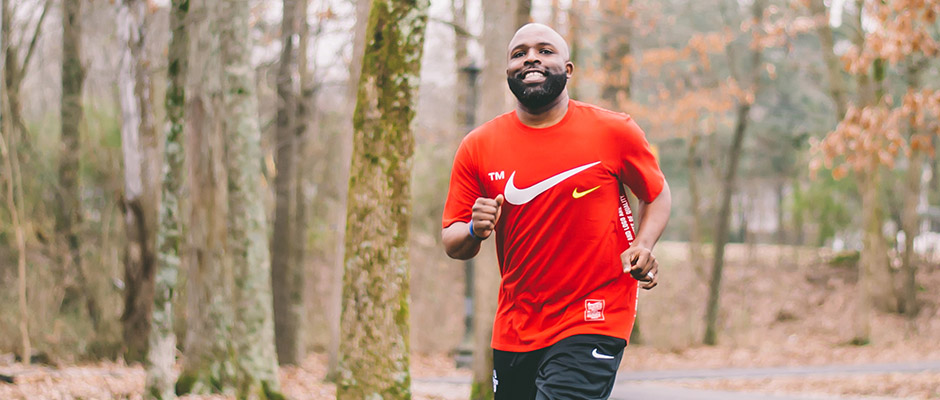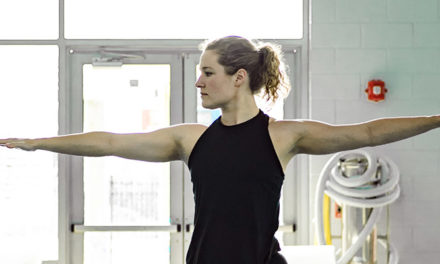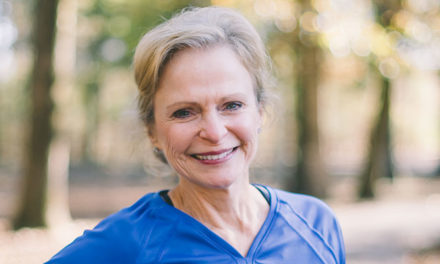Working hard has been a theme throughout 39-year-old Marques Young’s life. It started when he was seven and his father signed him up for Little League Baseball. “I had no idea what I was doing. I put my glove on the wrong hand and got hit in the head with a ball on the first day of practice,” Marques says.
Without any encouragement from his parents, Marques got his hands on some tennis balls and practiced catching using the concrete steps in front of his house. “Every day—rain, shine, or scorching hot—that’s what I did.” He came back next season and made the All-Star Team, and every year that followed.
When Marques made it to high school, it was the 1990s. Around that time, Loyola Marymount player Hank Gathers was in the news. He had collapsed and died during a game. Marques was diagnosed with the same heart-muscle disorder as Gathers: hypertrophic cardiomyopathy (HCM), an abnormal thickening of the heart muscle that makes it hard to pump blood.
He was allowed to continue playing baseball, and it was actually a torn ACL that prevented him from continuing his career at the University of Tennessee. Marques remained active through college, though. He played softball and touch football while he was studying mechanical engineering.
Enjoying a successful career in food manufacturing, Marques got married his late twenties to his wife, Tanya. Her eight-year-old daughter, Sydney, made him an instant father.
“Once I had a family, I wanted to become more serious about my health,” he says, “but I thought I had outgrown my condition and I that was fine.”
By the time he was in his early thirties, Marques was the Maintenance Manager of one of the largest breweries in the country. This vaulted him to an even more prestigious job in Denver. That success came at a price with the stress of the job taking its toll.
Marques made the choice to come back home to Covington for his family and his health. “That step down seemed like a good idea, but within three months, I was moved up to Plant Maintenance Manager again. I was right back to what I had just gotten away from.” Stress was still a big factor in his new job, but he was resolved to stay until their daughter finished high school.
“I was beyond burned out,” he says, and soon enough, he was in the emergency room. “It wasn’t a heart attack, but at that moment, I knew I had to do something different. I didn’t know what it would be. I had to get the bills paid.”
In addition to his job, he worked on the side teaching people how to manage their money, managed social media, and published books. With his wife’s encouragement, he eventually decided to take a significant pay cut and start a new career as a financial advisor.
His affinity for that role was immediately apparent. “This isn’t a job. This isn’t work. This isn’t a career. This is my purpose. My life’s work. I help people design the lifestyle they want,” Marques says.
The couple thought his career change would immediately lead to a healthier life. However, years of stress had a detrimental effect on his heart. The family was enjoying a social event at the park with a casual game of kickball when Marques fell ill.
He chalked up his shortness of breath to heat, pollen, and being slightly out of shape. He quit the game and began dousing himself with water, but felt little relief. His wife drove them home, and it wasn’t until after midnight that the seriousness of his condition began to sink in.
“A small voice in the back of my head said, ‘If you go to seep you’re going to die,’” he recalls.
They went to the ER and they began prepping him for surgery. Marques later learned he had a total blockage on the right side of his heart and had suffered a heart attack without knowing it. He also learned that HCM, the condition that most concerned him, was what had kept him alive. The thickness of the left wall of his heart had made it used to working much harder than normal.
They made immediate changes to their lifestyle by throwing away all the junk food in their house and changing their diet. The treadmill they had purchased a year earlier, that had become an oversized clothes hanger, was unearthed.
“That first day on the treadmill was like my first day of baseball all over again. I struggled to complete even a slow 15-minute walk. I felt defeated,” Marques says. “Nobody told me depression could be a side effect of surviving a heart attack, but it’s a common thing.”
Things turned around when he found a support group on Facebook; social media became his accountability partner. His 30-minute walk grew into a two-mile walk, which eventually became running two miles. Encouraged by his daughter, Sydney, who is also a runner, he signed up for the Great American River Race. He made the St. Jude 10K his next goal.
In two weeks of training, he conquered that distance and then added speed. His cardiologist was astonished but gave him no restrictions. A month later, Marques finished a half marathon on his own and is still keeping up the pace.
After his journey from near death and deep depression to a healthy body and mind, he now volunteers as a mentor with The Heart Association. “I know some people want to give up, but I remind them that cardiac problems don’t have to define them. No matter how things look, there are resources available and they can make a better outcome.”
Marques’s heart attack wasn’t caused by diet or inactivity. He says, “Stress was the culprit. It was the cumulative effect of smaller things.” Since that trip to the emergency room, he’s been thoughtful and deliberate about redesigning his life.
Although Marques is a financial advisor, he finds himself often discussing other factors like health that impact his clients’ lifestyles. “I urge people to dream in 3D—desire, dedication, and discipline. If any of these components are missing, it causes stress.”
Marques’s low-stress lifestyle includes meditating every day and taking off Friday afternoons. He’s slowed down and is more self-reflective. He says, “After a cardiac event, you have to dig a little deeper.” Therapy is also part of his holistic approach to well-being.
“It’s not just the physical component,” he says. “You have to balance the mental, emotional, and spiritual aspects of health. Otherwise, you’re going to have issues. It’s not a matter of ‘if’ but ‘when.’”
By Caroline Sposto. Photo by Tindall Stephens.







